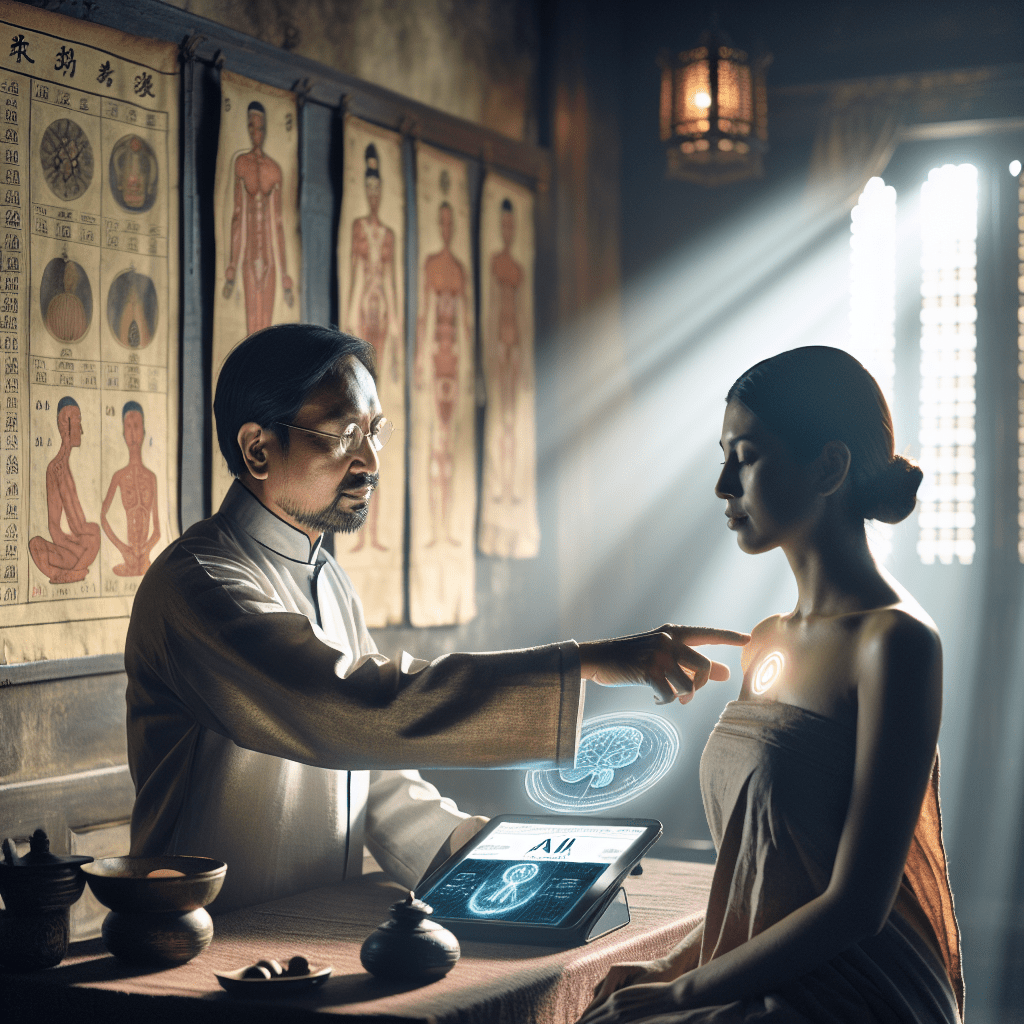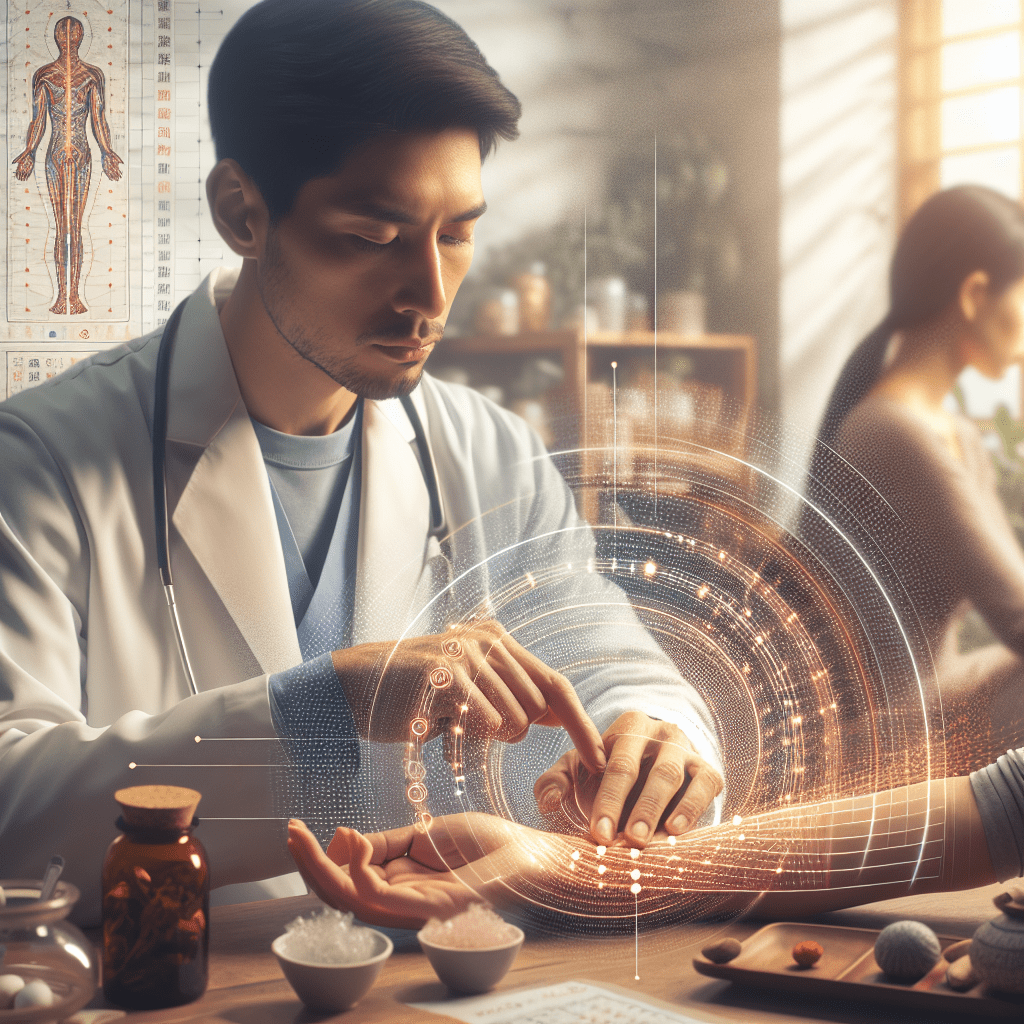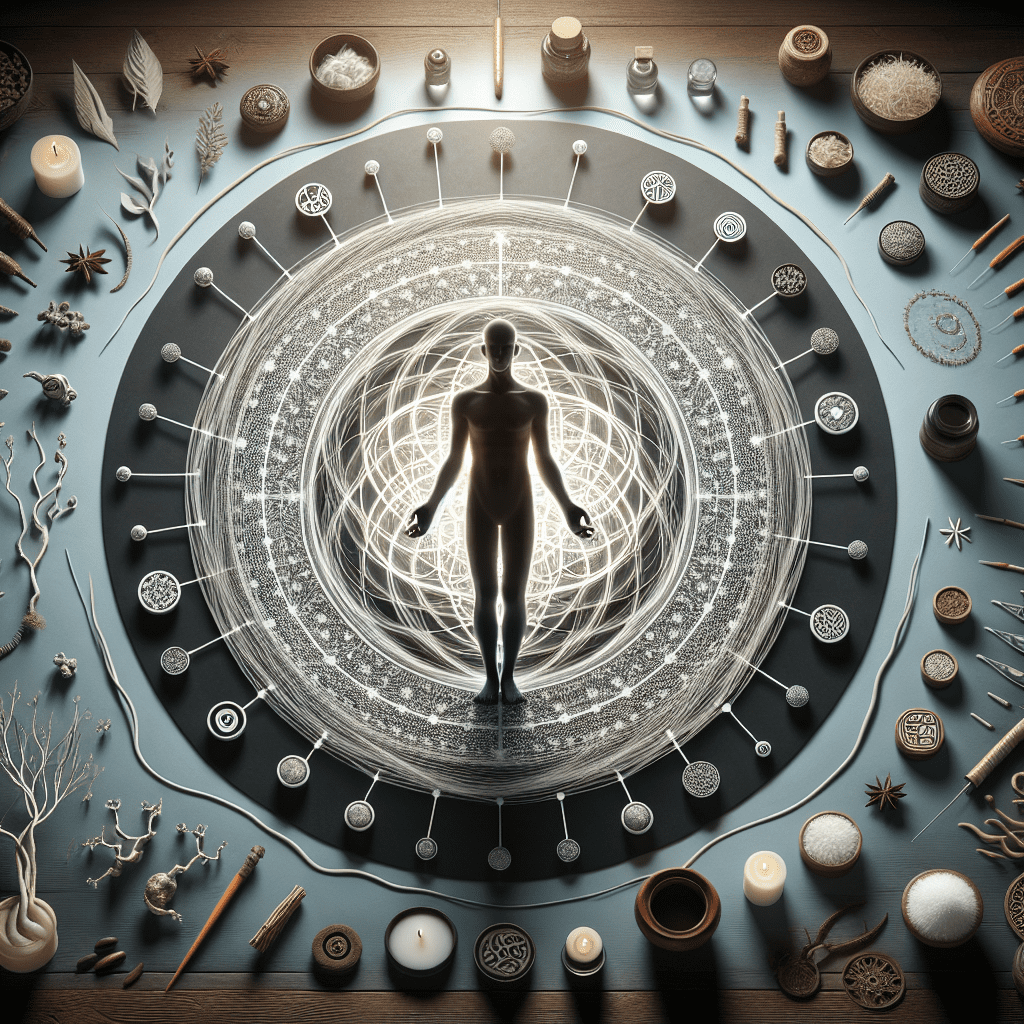In a world where cutting-edge technology seems to advance by the minute, something remarkable is happening in the realm of holistic health. Traditional Chinese Medicine (TCM), with its 2,000-year-old wisdom, is finding an unlikely but powerful ally in artificial intelligence. This fascinating intersection of ancient healing practices and modern technological innovation is capturing the attention of health enthusiasts worldwide.
The marriage between AI and TCM represents more than just a trend—it symbolizes a bridge connecting time-honored healing traditions with the precision of data-driven insights. Health-conscious individuals are increasingly drawn to this blend, seeking the best of both worlds: the holistic, personalized approach of Eastern medicine combined with the analytical capabilities of today’s most advanced technologies.
As we witness this exciting convergence, many wonder: Could this fusion of old and new create a more comprehensive approach to wellness that honors traditional wisdom while embracing technological progress? Let’s explore how AI in TCM is reshaping our understanding of holistic healing.
Enhancing Diagnostic Precision Through AI
One of the most promising applications of AI in TCM lies in its ability to enhance diagnostic accuracy. Traditional Chinese Medicine has always emphasized careful observation of subtle body signals—from tongue appearance and pulse qualities to facial features and body odors. These observations require years of training and experience to master.
AI systems are now being trained to analyze thousands of diagnostic images, including tongue photos, a critical diagnostic tool in TCM. By processing vast amounts of data far beyond what a single practitioner could ever experience, these systems can identify patterns and correlations that might otherwise go unnoticed.
“The integration of AI with TCM has ushered in new possibilities for advancing research and development within the field,” notes a recent study examining this technological evolution. notes a recent study examining this technological evolution. “This convergence is driving significant progress across various domains, including TCM diagnostics, production, quality control, and exploration of its therapeutic mechanisms.”
For practitioners, AI serves as a supportive tool rather than a replacement. By analyzing large datasets of patient information, AI can help confirm diagnoses and suggest treatment approaches based on thousands of similar cases. This synergy between human expertise and machine learning creates a more robust diagnostic process that maintains TCM’s holistic philosophy while enhancing its precision.
For patients seeking personalized healthcare solutions, this means more accurate assessments of their unique constitutions and imbalances—a cornerstone of effective TCM treatment. The combination of a practitioner’s intuitive understanding with AI’s pattern recognition capabilities offers a more comprehensive evaluation than either could provide alone.
Customized Treatments: When AI Meets Individual Health Profiles
TCM has always emphasized that no two patients are exactly alike, even when presenting with similar symptoms. This philosophy of personalization aligns perfectly with the capabilities of modern AI systems, which excel at processing multiple variables to create tailored recommendations.
By analyzing individual health profiles, genetic information, lifestyle factors, and environmental influences, AI can help create truly customized TCM treatment plans. This approach echoes the philosophy behind platforms like EASTCHI AI, which specializes in delivering personalized nutrition plans and lifestyle recommendations grounded in Eastern medical theories.
Consider how AI-driven systems can process information about your constitutional type according to Five Element Theory, your current imbalances, seasonal influences, and dietary preferences to create a uniquely tailored wellness plan. This level of personalization was always the goal of TCM, but AI makes it more achievable and consistent.
“AI-driven personalized TCM treatment decision-support systems help healthcare professionals make more accurate treatment decisions,” explains one researcher in the field. “These systems analyze complex patterns in patient data to suggest optimal herbal formulations and acupuncture points for each individual’s specific condition.”
For someone with a busy lifestyle seeking natural health solutions, this means receiving TCM recommendations that truly fit their unique needs and circumstances. Rather than generic advice, AI in TCM provides specific guidance on herbal formulas, dietary adjustments, and lifestyle modifications that align with their individual health profile.
Predictive Analytics: Anticipating Health Issues Before They Arise
Perhaps one of the most exciting developments in AI and TCM integration is the emergence of predictive analytics capabilities. TCM has always emphasized prevention as the highest form of medicine—the idea that maintaining balance prevents disease from developing in the first place.
AI takes this preventive approach to new heights by identifying subtle patterns that might indicate future health concerns. By analyzing trends in pulse readings, tongue appearance, and other diagnostic markers over time, AI systems can detect minor imbalances before they manifest as noticeable symptoms.
This predictive capacity resonates deeply with those pursuing natural, preventive healthcare methods. Rather than waiting for problems to develop, AI-enhanced TCM can suggest proactive measures to maintain harmony within the body’s systems.
For example, an AI system might notice subtle changes in your tongue coating that correlate with digestive imbalances in similar patients. Based on this observation, it could recommend specific dietary adjustments, herbal formulas, or lifestyle changes to address the imbalance before it progresses to discomfort or disease.
“Machine learning algorithms could identify correlations between specific symptom clusters and optimal preventive approaches, enhancing treatment efficacy,” notes one study examining AI applications in TCM. This capacity to foresee potential health issues aligns perfectly with the Eastern medical philosophy of addressing the root cause rather than merely treating symptoms.
Quality Assurance: Maintaining Standards in TCM Products
As interest in natural remedies continues to grow, so does the need for reliable quality control measures. AI is playing an increasingly important role in ensuring the safety, purity, and efficacy of TCM products—from raw herbs to complex formulations.
Advanced imaging and analysis techniques powered by AI can detect subtle variations in herb quality, identify potential contaminants, and verify the authenticity of medicinal plants. This technological oversight helps maintain consistency in TCM products, ensuring that consumers receive the benefits they seek from these natural remedies.
“The development of computer vision models and image processing technologies in AI can enhance the accuracy of TCM identification, ensuring effective quality control,” reports one researcher studying this application. For health-conscious consumers, this means greater confidence in the TCM products they use.
Beyond basic quality control, AI systems can also analyze the chemical profiles of herbal medicines to better understand their mechanisms of action. This deeper understanding helps standardize production processes while preserving the complex synergistic effects that make TCM formulations effective.
“AI-powered analysis of TCM chemical data enhances chemical component identification, drug discovery, personalized treatment, and pharmacological action understanding,” explains a study on AI applications in herbal medicine research. This scientific validation strengthens trust in traditional remedies while maintaining their holistic nature.
Transforming TCM Research and Discovery
The research capabilities unlocked by AI are perhaps the most transformative aspect of this technological integration. TCM encompasses thousands of herbs, hundreds of formulations, and countless therapeutic approaches—a vast knowledge base that would take lifetimes to fully explore through conventional research methods.
AI accelerates this exploration by analyzing research papers, clinical records, and traditional texts as demonstrated in recent university research to identify promising compounds, effective combinations, and novel applications. This computational power helps bridge the gap between traditional knowledge and modern scientific understanding.
“By leveraging data-driven approaches, AI can help bridge the gap between the holistic and personalized concepts of traditional Chinese medicine and the demands for standardization and scientific rigor,” notes one paper on systems theory approaches to AI in TCM research.
For platforms like HerbalsZen, which integrates Eastern medical wisdom with advanced technology, this research capability creates opportunities to develop more effective, evidence-backed wellness solutions. The ongoing evolution of AI in TCM research continuously enhances our understanding of these ancient healing practices.
Researchers are discovering new applications for traditional herbs, validating time-honored formulations, and uncovering unexpected benefits through AI-assisted analysis. This growing body of knowledge enriches the practice of TCM while making its benefits more accessible to those seeking natural health solutions.
The Future of Holistic Healing: A Harmonious Partnership
As we consider the remarkable synergy between AI and TCM, it’s worth asking: Is this integration truly the future of holistic healing? The evidence suggests that this partnership offers unique advantages that neither tradition nor technology could achieve alone.
AI enhances the precision, consistency, and accessibility of TCM without compromising its holistic philosophy. Meanwhile, TCM provides AI with a rich, complex understanding of human health that transcends the reductionist approach often found in conventional medicine.
For health-conscious individuals drawn to Eastern healing philosophies, this integration offers the best of both worlds—personalized care rooted in ancient wisdom, enhanced by the analytical capabilities of modern technology. Platforms like EASTCHI AI exemplify this approach, using artificial intelligence to deliver customized wellness recommendations based on TCM principles.
The future likely holds even more promising developments as this partnership evolves. Imagine wearable devices that monitor subtle changes in your constitution and suggest timely adjustments to your herbal regimen or dietary habits. Or AI systems that can translate complex TCM concepts into practical, accessible guidance for those new to Eastern medicine.
As one researcher aptly puts it, “The future of AI in TCM diagnostics is promising, with opportunities to improve diagnostic accuracy, develop personalized treatment approaches, and promote integration with conventional medicine.” This integration creates a more comprehensive healthcare landscape that honors traditional wisdom while embracing innovation.
The ancient Chinese understanding of health as harmony between opposing forces—yin and yang—offers a fitting metaphor for this technological partnership. AI and TCM, seemingly opposite in their origins and approaches, create something more powerful when combined in balance.
For those of us seeking natural, holistic approaches to wellness, this harmonious integration of ancient wisdom and modern technology offers an exciting path forward—one that honors the time-tested knowledge of our ancestors while embracing the possibilities of our technological future.
What do you think? Could this blend of Eastern healing traditions and cutting-edge AI be the key to a more balanced, personalized approach to health and wellness? The journey of discovery continues, but one thing seems certain: the dialogue between ancient wisdom and modern technology is just beginning to reveal its full potential.




